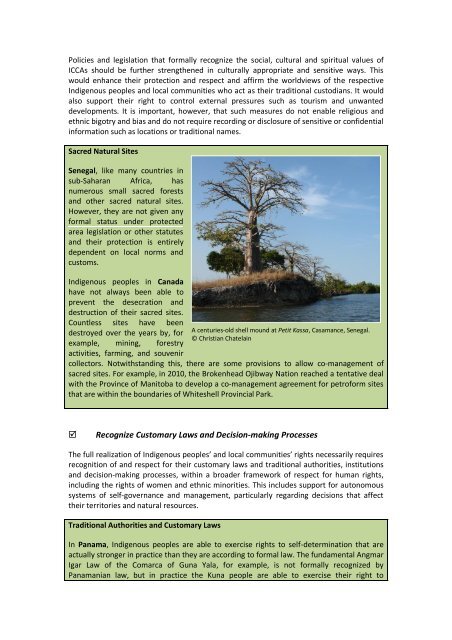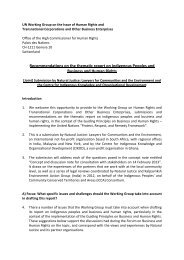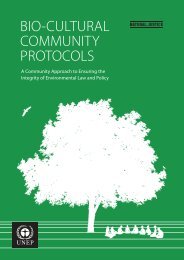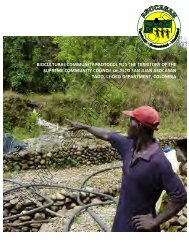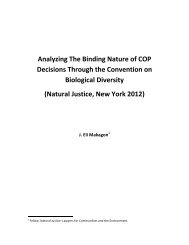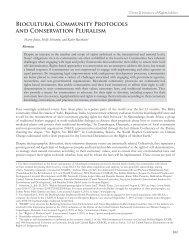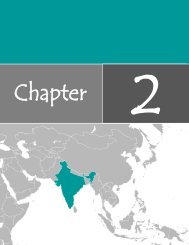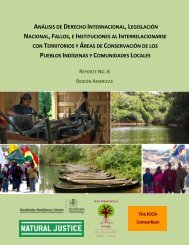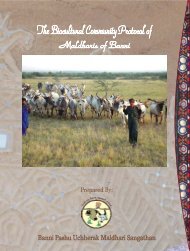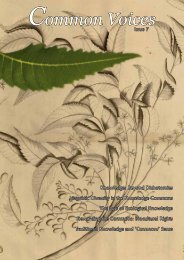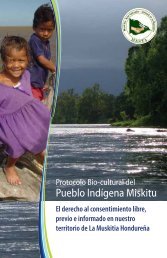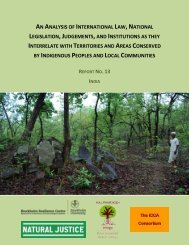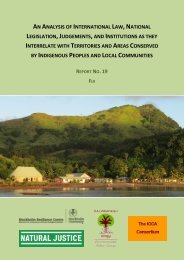English - Natural Justice
English - Natural Justice
English - Natural Justice
You also want an ePaper? Increase the reach of your titles
YUMPU automatically turns print PDFs into web optimized ePapers that Google loves.
Policies and legislation that formally recognize the social, cultural and spiritual values ofICCAs should be further strengthened in culturally appropriate and sensitive ways. Thiswould enhance their protection and respect and affirm the worldviews of the respectiveIndigenous peoples and local communities who act as their traditional custodians. It wouldalso support their right to control external pressures such as tourism and unwanteddevelopments. It is important, however, that such measures do not enable religious andethnic bigotry and bias and do not require recording or disclosure of sensitive or confidentialinformation such as locations or traditional names.Sacred <strong>Natural</strong> SitesSenegal, like many countries insub-Saharan Africa, hasnumerous small sacred forestsand other sacred natural sites.However, they are not given anyformal status under protectedarea legislation or other statutesand their protection is entirelydependent on local norms andcustoms.Indigenous peoples in Canadahave not always been able toprevent the desecration anddestruction of their sacred sites.Countless sites have beendestroyed over the years by, forexample, mining, forestryactivities, farming, and souvenirA centuries-old shell mound at Petit Kassa, Casamance, Senegal.© Christian Chatelaincollectors. Notwithstanding this, there are some provisions to allow co-management ofsacred sites. For example, in 2010, the Brokenhead Ojibway Nation reached a tentative dealwith the Province of Manitoba to develop a co-management agreement for petroform sitesthat are within the boundaries of Whiteshell Provincial Park.Recognize Customary Laws and Decision-making ProcessesThe full realization of Indigenous peoples’ and local communities’ rights necessarily requiresrecognition of and respect for their customary laws and traditional authorities, institutionsand decision-making processes, within a broader framework of respect for human rights,including the rights of women and ethnic minorities. This includes support for autonomoussystems of self-governance and management, particularly regarding decisions that affecttheir territories and natural resources.Traditional Authorities and Customary LawsIn Panama, Indigenous peoples are able to exercise rights to self-determination that areactually stronger in practice than they are according to formal law. The fundamental AngmarIgar Law of the Comarca of Guna Yala, for example, is not formally recognized byPanamanian law, but in practice the Kuna people are able to exercise their right to


